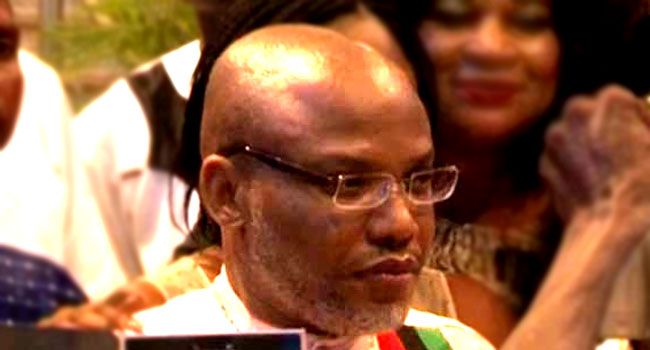By Uche Usim, Abuja
Minister of Finance Budget and National Planning Mrs Zainab Ahmed has lashed the Minister of Communications and Digital Economy, Dr. Isa Pantami, over his objections to the implementation of five per cent tariff hike on calls, SMS and data, saying his actions betray the 2020 Finance Act, where government drew the strength to implement the new tax rule.
Ahmed, in a statement by her spokesman, Tanko Abdullahi, wondered why Pantami was attempting to rock the boat when he was part of the drafting of the 2020 Finance Act that eventually secured the blessings of the Federal Executive Council (FEC) and the National Assembly.
Pantami recently expressed his disapproval for the policy at a telecom forum in Lagos, organised by the Nigeria Office for Developing the Indigenous Telecoms Sector (NODITS), an agency domiciled in the Nigeria Communications Commission (NCC). He insisted on exploring every legitimate means to stop the planned implementation of the five per cent excise duty tax on telecom consumers, faulting the timing and process of imposing the tax on the telecom industry. He added that part of the responsibility of a responsive government was not to increase the challenges citizens were facing.
“I have not been contacted officially. If we are, we surely will state our case. The sector that contributes to the economy should be encouraged. You introduce excise duty to discourage luxury goods like alcohol, but broadband in the telecom sector is a necessity,” he said further.
But the finance minister questioned if Pantami was absent in the whole processes that resulted in the Finance Act, which is a product of both the National Assembly and Federal Executive Council (FEC).
“Suffice this to say that before the Act, the Finance Bill would have been through the FEC of which Prof. Pantami is a member and the National Assembly. In other words, he was involved in the making of the Finance Act which spells out the said excise tariff hike policy.
“Therefore, he could not obviously have had a point in his dissenting views even as the National Assembly could not have contradicted itself on this matter, because the parliament had passed the Finance Bill before President Muhammadu Buhari signed it into law”.
Nonetheless, the Finance Minister said the implementation process for the five per cent telecoms tax and the existing 7.5 per cent Value Added Tax (VAT) paid for goods and services across all sectors of the economy were being tidied up as the move seeks to swell the revenue of the government from non-oil sectors.
If the telecoms tax is collected and remitted to the cash-strapped Federal Government by the 21st of every month as planned, it would realise about N150 billion annually or N12.5 billion monthly according to industry projections.
The finance minister added that the development was not new as countries in Sub-Saharan Africa such as Tanzania, Uganda, Malawi, Kenya, Rwanda, Ghana and Burundi currently impose excise duty on telecommunication services ranging between five percent to 20 percent.
“Nigeria is one of the largest telecommunication markets in Africa. Available reports from the NCC show four categories of operators, i.e. mobile (GSM), fixed telephony operators (fixed/ fixed wireless), internet service providers (ISPS) and others (operators other than mobile & fixed telephony, ISPs).
“Subscriber number continues to grow substantially, having increased from about 180 million subscribers in 2019 to over 200 million active subscriptions in 2020. This represents an increase of over nearly 11 percent in total subscriptions”, she said.
Already, circulars for the implementation of the two tariff hikes have been dispatched to relevant ministries and agencies.
For both taxes, the circular, with Reference No. F. 17417/VI/286 dated 1st March 2022, and titled “Approval for Implementation of the 2022 Fiscal Policy Measures and Tariff Amendments” was addressed to different Ministers, including the Minister, Communications and Digital Economy and other heads of government agencies.
The circular was also addressed to The Secretary To The Government of The Federation, Attorney-General of The Federation, Ministers of Industry, Trade and Investment, Agriculture and Rural development, Mines and Steel and Development.
Others are Ministers of Health, Aviation, Information And Culture, Budget And National Planning.
Other heads of agencies copied in the circular are Accountant-General of the Federation, Comptroller-General of Customs, Governor of the Central Bank of Nigeria, Executive Chairman of the Federal Inland Revenue Service and the Director-General of the Raw Materials Research and Development Council.
Others are the Executive Secretary of Nigerian Export Promotion Council (NEPC) and the Executive Secretary of the Nigerian Investment Promotion Commission.
Part of the circular reads: “This is to convey that his Excellency Mr. President has approved Supplementary Protection Measures (SPM) for implementation of ECOWAS Common External Tariff (CET) 2022-2026 and excise duties on non-alcoholic beverage, cigarettes and Tobacco products as well as telecommunication services with effects from 1st April 2022.
The circular signed by Mrs. Ahmed read: “A grace of ninety (90) days commencing from the date of implementation of this circular i.e April 1, 2022, shall be granted to all importers who had opened Form M and must have entered into irrevocable trade agreement before the coming into effect of this circular to process and clear these goods at the prevailing duty rates.
“However new import transactions entered from the 1st of April 2022 will be subjected to the new import duty regime.”
On the other hand, the excise duty on telecommunication services provided in Nigeria introduced through the Finance Act, 2020 with statutory enactment on 1st January, 2021 is yet to be implemented till date.
This is considering the need to ensure a reasonable transition period before the implementation of the new tax, as well as providing clarity to all stakeholders on implementation modalities.

